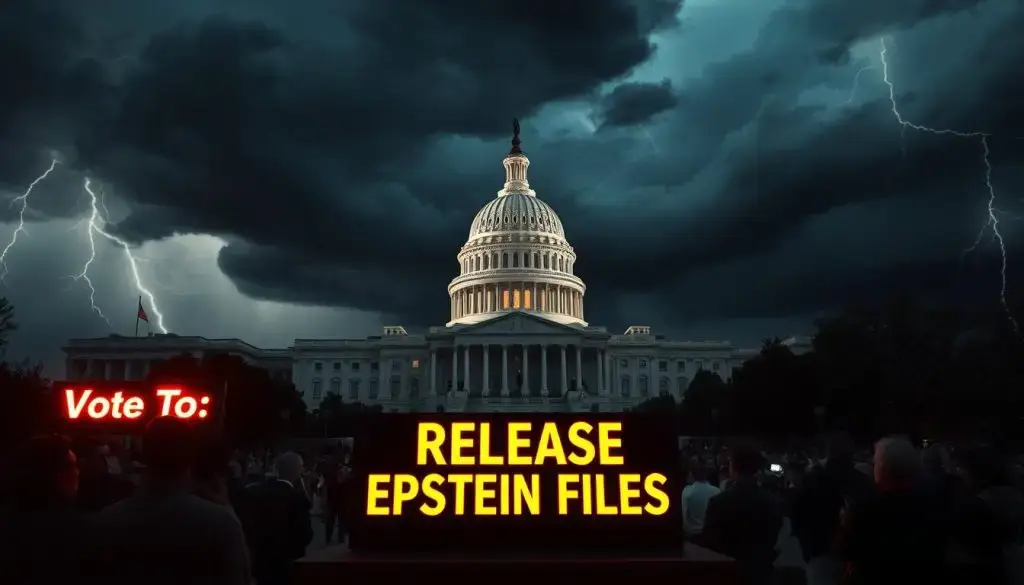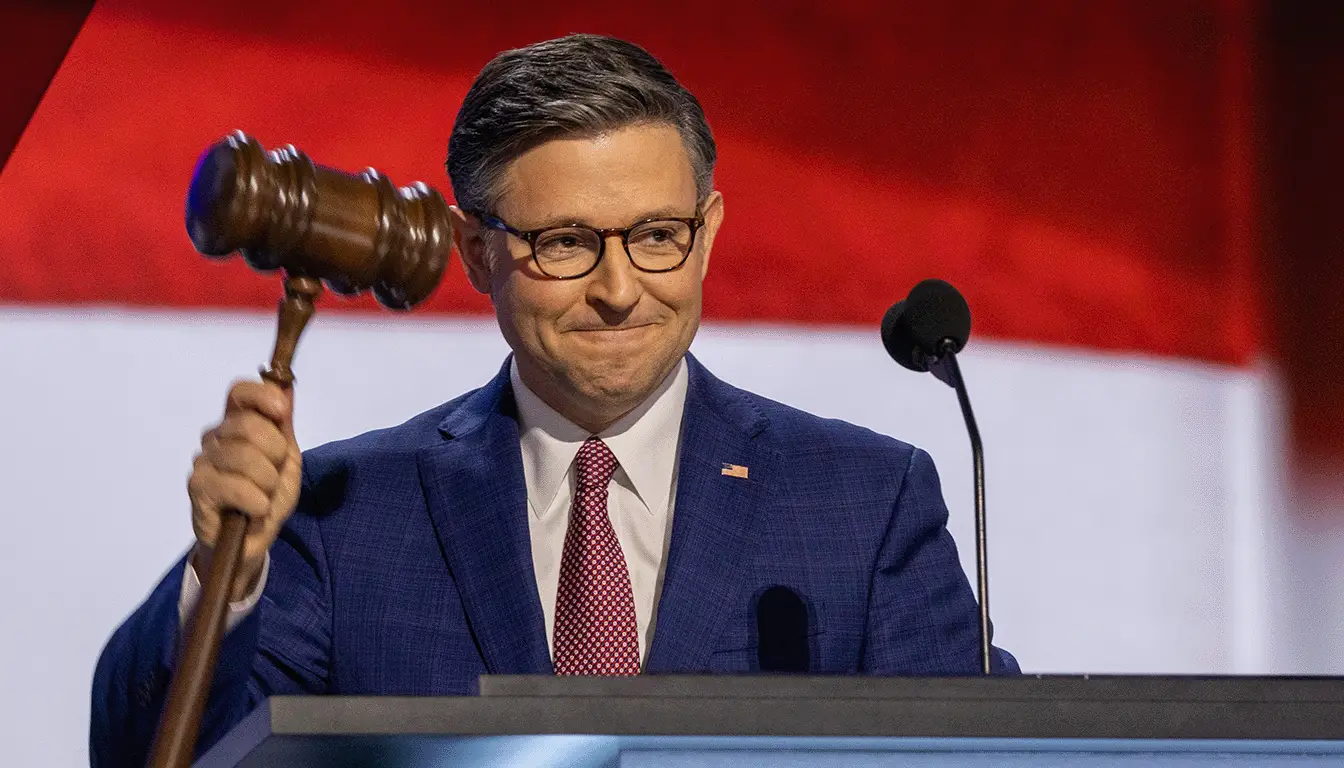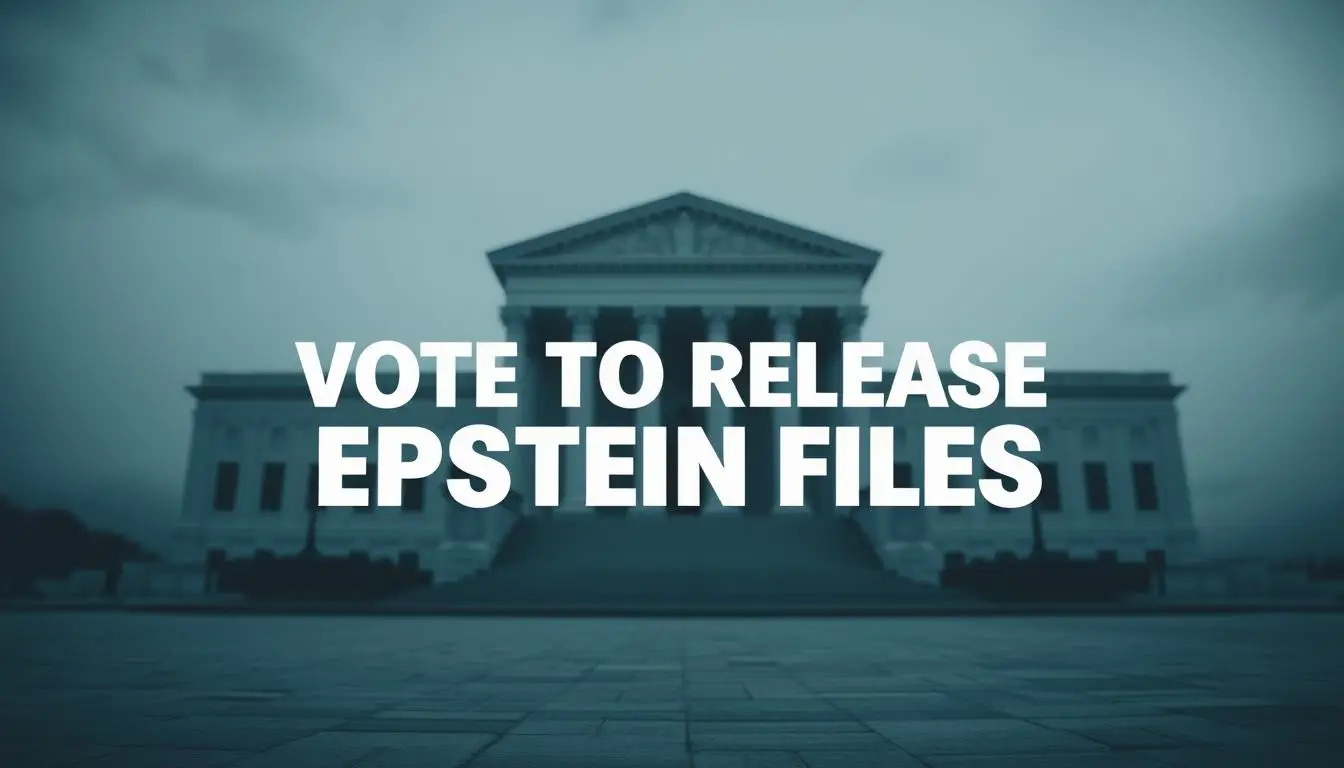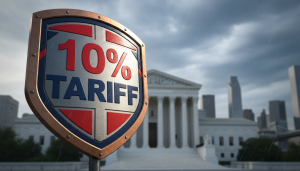House Speaker Mike Johnson Calls for Vote on Full Epstein Disclosure
House Speaker Mike Johnson leads a pivotal vote to release Epstein files, amplifying demands for transparency in the high-profile case.

Johnson Calls for Vote to Release Epstein Files: House Speaker Mike Johnson has announced that the House will vote on releasing Epstein files next week. This comes after a tense summer, where he ended the House schedule early. He sent members home for a five-week recess as pressure mounted.
During the shutdown fight, he kept the House out of session longer than usual. This slowed the swearing-in of the decisive 218th member and stalled the release of the Epstein files.
That slow-walk has run its course. Johnson’s announcement sets a key test for Congress. It could change the pace of Epstein case updates.
Former President Donald Trump has opposed the timing and tried to push some Republicans to abandon the effort. Yet, the plan is moving forward. A decisive vote could increase pressure on the Senate and the White House.
Public attention has spiked as lawmakers weigh the scope of any release. They must also consider the need to protect victims. The momentum reflects a broad public outcry for the release of Epstein’s records and transparency.
For context on the numbers behind the looming vote, see this report from ABC News.
Key Takeaways
- Mike Johnson will schedule a Vote to release the Epstein Files after nearly four months of delay.
- The early recess and a prolonged shutdown period slowed the release of the Epstein files.
- Donald Trump opposed the move and pressured Republicans to pull back, without success.
- The vote is symbolic but influential, setting the stage for next steps in the Senate and the White House.
- Rising public outcry over Epstein’s records drives calls for transparency and timely updates on the Epstein case.
- A wide margin in the House could reshape the political calculus across both parties.
Why the House Is Moving Now: Political Stakes, Public Pressure, and Transparency Demands
Momentum has shifted. Lawmakers face voters who want answers about the Epstein case. They’re pushing for transparency and accountability. An online petition is gaining signatures fast, showing the House’s urgency to act.
Johnson’s scheduling decision after months of delays and GOP fractures
Speaker Mike Johnson has decided to hold a vote. This move ends months of delays and party disagreements. It marks a shift from waiting to debating.
This decision shows the House is listening to both party divisions and public demands. They want to be transparent about the Epstein investigation and hold officials accountable. More on the Epstein files case.
How discharge petitions and mass defections set up a high-stakes vote
A rare tactic, discharge petitions, sped up the process. Supporters claim they have obtained the necessary 218 signatures. This makes the vote a critical moment.
It’s expected that many will cross party lines to vote yes. This could have a significant impact. An independent explainer provides more context.
Trump’s opposition and the loyalty dilemma facing Republican members
Donald Trump has told Republicans to vote no. This creates a tough choice for them. They must decide whether to follow Trump or heed their constituents’ calls.
Members face a clear decision. They can follow Trump or support a vote that seeks truth and accountability. This vote could reveal important information.
Polling shows overwhelming support for release with victim protections
Most people want the files released, but with protections for the victim. This makes it harder for lawmakers to vote against it. The public’s support is growing.
A growing number of lawmakers see the value in transparency. They understand that ignoring the issue could harm trust. The latest on the petition is available here.
Vote to Release Epstein Files
The House is set to vote on releasing records from the Jeffrey Epstein investigation. Supporters see this as a push for justice for Epstein victims and transparency. It could also debunk Epstein conspiracy theories by making the facts public.
What the House vote can and cannot do: next steps for Senate and White House
A House majority vote doesn’t automatically release the documents. The bill needs Senate approval and the president’s signature. A decisive vote would make it harder for delays and keep the spotlight on the path ahead for an Epstein files release request.
If the Senate acts, the White House will have to make a decision. This decision could impact how the public views openness and victim protections. It’s a key moment for justice for Epstein victims.
Rep. Thomas Massie’s two-thirds threshold and implications for a veto override
Rep. Thomas Massie wants a two-thirds vote. This would demonstrate strong bipartisan support and make a veto more difficult. It would also counter Epstein conspiracy theories by demonstrating unity in support of disclosure.
Meeting this goal would strengthen the call for releasing the Epstein files in both chambers. It would also expedite the necessary action.
Why some Republicans may back the bill despite not signing the petition
Some Republicans who initially didn’t sign the petition now plan to vote in favor. They say it’s because of local demands for clarity and to end a political drag. Voting yes answers voters and avoids party conflicts.
For them, voting yes is about respecting victims, showing oversight, and reducing conspiracy theories.
Risk calculus: accusations of an Epstein cover-up versus accountability
Members are weighing the risk of being seen as covering up Epstein against party tensions. Voting yes supports disclosure and survivor protections. Voting no might be hard to explain as support for justice grows.
“Transparency cleans up doubt.”
The vote on releasing the Epstein files is a test of accountability. It goes beyond party lines and touches on public trust.
Vote to Release Epstein Files Conclusion
The House is ready for a big test on transparency. After months of waiting, leaders have set a date for a vote. This vote will show if the public’s demand for Epstein records is stronger than internal pressures and Trump’s opposition.
Will lawmakers choose to protect victims and demand transparency in the Epstein investigation? Or will they risk being seen as covering up evidence?
Even if the House votes yes, it’s not the end. The Senate and the White House must also act. A big, bipartisan vote could push the issue forward, even if there’s a veto.
Senators like John Kennedy might support a decisive vote. This could make a difference, even if it’s not a two-thirds majority.
Members now have a choice to make. Voters want officials to be held accountable in the Epstein case. They also want to protect the identities of survivors.
A “no” vote could lead to backlash in areas where trust in government is low. It’s time for measured disclosure, not more delays.
The outcome will set the tone for future oversight in significant cases. A decisive House vote will increase pressure on the Senate and the administration. It will also change how the public sees the investigation.
For more on the stakes and what’s next, see this report on next steps. The vote will show how Congress responds to public demands and institutional challenges.









